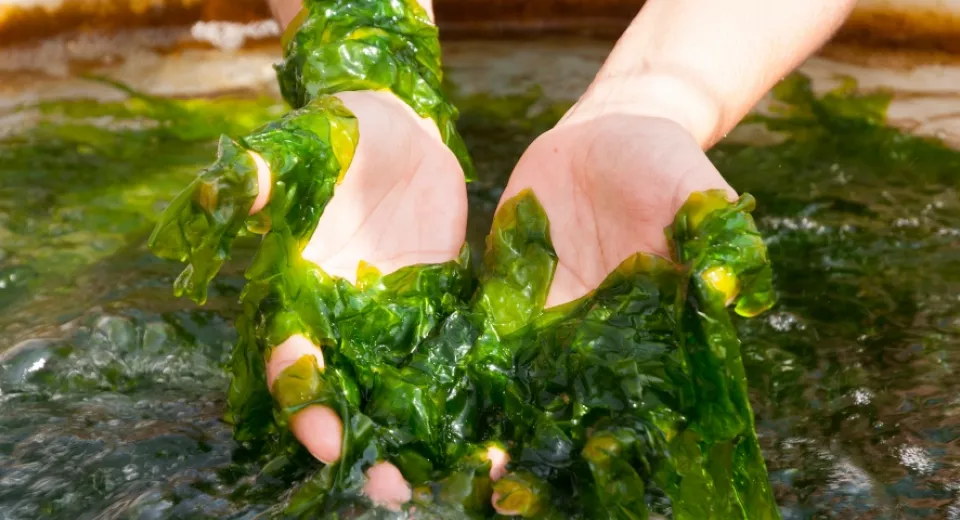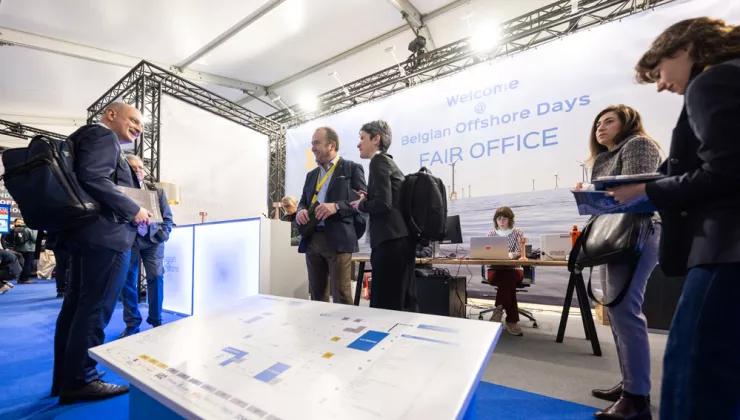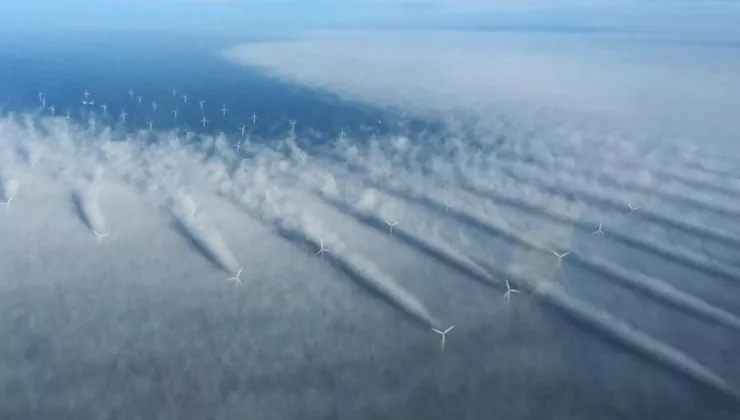Recommendations for a robust mariculture sector in Flanders
In spring 2021, Blue Cluster examined these non-technological obstacles. An intense dialogue with the sector and stakeholders provided insights into the regulatory framework, how this is perceived in practice and what the future ambitions and needs are.
This project resulted in a brief in which Blue Cluster aims to make tangible what bottlenecks the aquaculture sector experiences in terms of legislation and regulations and what avenues can be used to address these gaps.

Mariculture as a strategic choice
Developing a sustainable, marine aquaculture is an important opportunity in transforming our economy and food production. Additionally, mariculture may significantly contribute to the transition we are facing. In recent years, we have developed a lot of knowledge in this regard.
Despite the above, the step towards a fully-fledged - economically profitable - sector appears to be a big one. The development of a new sector is accompanied by techno-economic teething problems, but also the complex policy context and regulations hinder setting up a new economic activity.
The demand to address this issue was endorsed by the Flemish Parliament in the resolution “on the development of a sustainable and integrated aquaculture and mariculture in Flanders” (dated 2 June 2021). In addition, the strategic nature of mariculture in Belgium should not be underestimated in a European context.
If we want to evolve towards a fully-fledged and competitive mariculture sector in Flanders and Belgium in the near future, it will be necessary to make mariculture activities more attractive, entry-level and low-threshold for start-ups, as well as for SMEs and larger companies. To achieve this, there is a need for strategic positioning of aquaculture in Flanders and Belgium.
7 keys to success
To support the further development of marine aquaculture, Blue Cluster has made an analysis that visualises as neutrally as possible the bottlenecks experienced by the sector regarding legislation and regulations at a Flemish and federal level.
These bottlenecks are situated around 7 aspects: assessment of pilot projects, signalling obligations, sanitary controls, aquaculture zones, financial risks, administrative complexity and uneven playing field. On the basis of these seven aspects, we formulated clear and feasible recommendations for policy makers:
- Mariculture heat map: The government will map which areas in the Belgian part of the North Sea have suitable growing conditions, diversifying between different species. The heat map should clarify where the ‘hotspots’ for mariculture are located and whether this is consistent with the zones in the marine spatial plan.
- Aligning with neighbouring countries: The government will commit to adopting a competitive stance on mariculture. To this end, it will adjust its own procedures or eliminate gaps in legislation by means of case studies and by looking at the implementation of legislation and regulations in our neighbouring countries.
- Workable framework for pilot projects: The government will provide an innovative framework for pilot projects by expanding the definition of research projects to the entire value chain of aquaculture products, on the one hand, and developing a more flexible procedure to maintain the infrastructure of pilot projects in the form of commercial projects, on the other.
- Established MariParks: The government will take the initiative to establish zones suitable for aquaculture as MariParks and take appropriate measures to ensure safety, such as installing cardinal mark buoys and checking the quality of the shellfish waters. In doing so, the government is creating a legally protected and safe framework for investors in mariculture.
- Cooperation agreement: The Flemish and Belgian government will conclude a cooperation agreement within which the respective powers are aligned and clarified. This provides a clear administrative framework for the mariculture sector.
- One-stop-shop: The Flemish and federal government will install a hybrid service where companies can reach out to contact points at both the Flemish and federal level when they want to go through the procedures for the start-up and follow-up of mariculture projects.
- Insurance against damage: By analogy with agriculture, the government will take out an insurance against damage for the mariculture sector to cover the economic damage caused by natural phenomena, thus safeguarding the sector from bankruptcy.

The flight forward…
This brief is primarily a call to the relevant (Flemish and federal) public services to take our proposals into consideration and initiate actions. Blue Cluster has already completed a first round of consultations with these services. Based on the feedback received, Blue Cluster will set up concrete follow-up actions in spring 2022.
The first priority is to develop the mariculture heat map for mariculture in the Belgian part of the North Sea and to conduct a comparative study of the legislative and regulatory framework for mariculture in our neighbouring countries. To this end, Blue Cluster will engage in dialogue with its members, partners and relevant public services.
For more information, please contact Ann Overmeire.


